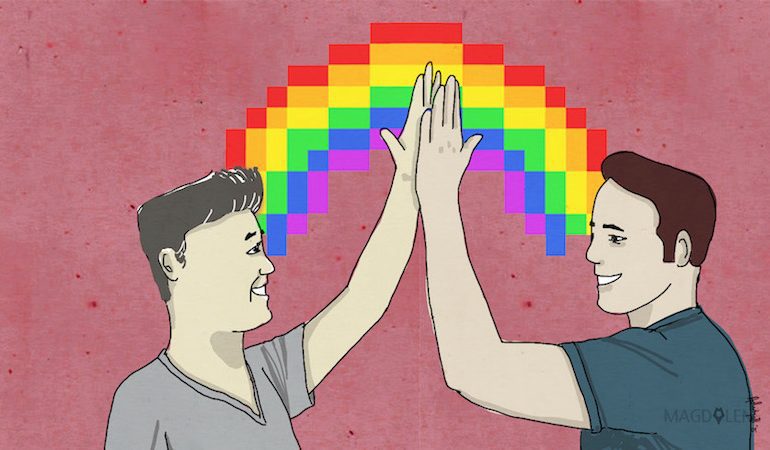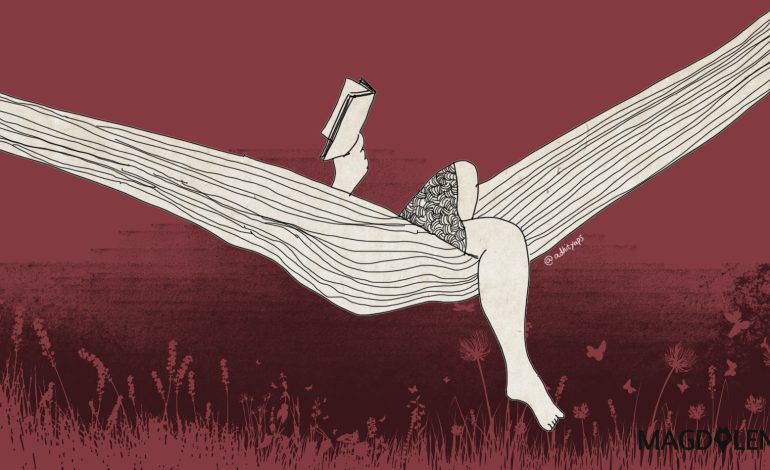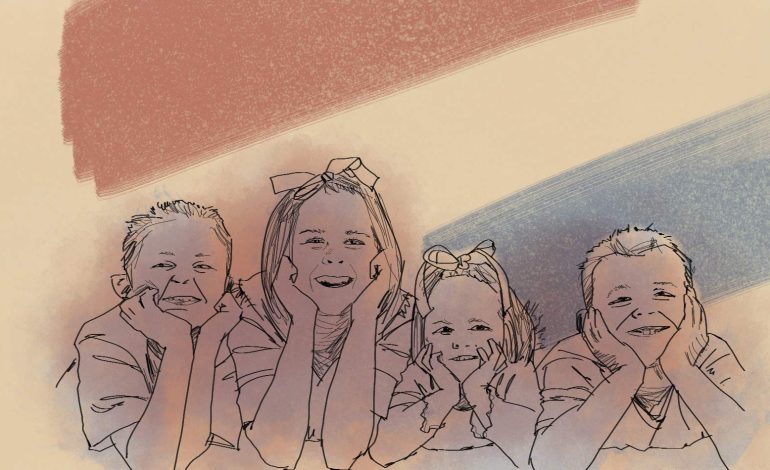Had I Known, I Would Never Have Accepted the Role of a Token Gay Friend

Friends circle plays an important role in the life of a queer teenager. For gay teenagers who have just come out, it can be confusing to think about who to tell and trust in their journey of discovering themselves. That’s why having people to trust can ease some burdens, and, at the very least they have people to hang around and share their secrets with.
But finding the right circle of friends as a gay person in Indonesia isn’t as easy as the way Nia Dinata portrayed in her movie Arisan. We are not Sakti, surrounded by his straight girl friends who don’t define him by his sexuality only. The reality is harsher out there.
As someone who came out very early in my middle school year, I was lucky enough to have found a friends circle who accepted me – or so I thought initially. I went to a private Catholic school in Indonesia, not a friendly place for a young queer teenager with homophobia still rampant. While struggling to make friends, one day a group of popular girls asked me to hang out. Obviously, I was in no position to ignore an offer of friendship, thus I became their GBF.
Also read: How To Be a True Friend to LGBT Folks
These girls were nice and all, but younger me didn’t realize that sometimes my presence in the group was merely for aesthetic. I was expected to give them tips on fashion; I was there so they could introduce me as the gay friend in their circle to their friends and family. I was there to complement their girl-bonding time – because, somehow, a popular girls clique isn’t complete without a GBF. Worse, these girls suffered with a severe case of covert homophobia.
My younger self did not realize the occasional microaggressions thrown at me: times they were telling me to act more masculine or that I’d be “healed” one day. They even called slurs on me, assuming they had a “pass” to do because they were my friends. I was trapped in this toxic friendship from middle school until I cut them when I started college.
Yes, maybe I was fortunate, because at least I had friends to hang out with who accepted me. Maybe being a member of popular girls clique gave me leverage, so that I did not get bullied. Maybe I had it better than most gay kids who struggled to make friends growing up. Yet, here I am, years later, questioning whether or not having all those privileges were worth it if the friends you made actually saw you as an accessory, instead of real friend.
Also read: Being Gay and Indonesian: Appropriated but Marginalized
Maybe the actual problem is the fact that living in Indonesia – where religious conservatism and persecution of LGBTQ people have been on the rise – forces us to hide in fear of repercussions. So the moment there is an offer to be a part of a group of friends, we are more likely to accept, regardless of whether or not the offer is a genuine act of friendship, or if we are only given a token role of a gay friend.
For me, the realization came after I learned more about queer oppression and relationship. Freshman year in college was the first time I met another queer-identifying person, and that was such a relief, because of the relatability that we have. What was important, though, was the genuine friendship that we’ve mutually built. It wasn’t because I desperately needed friends, rather, we immediately clicked and felt comfortable around each other. I wish I had found them sooner when I first came out. Relatability is what I didn’t have with my circle of straight girlfriends.
Also read: In the Closet, Out of the Gossip: The LGBT People’s Urgent Need for Safe Space
Now of course, we have the option to explain and educate our straight friends about how uncomfortable we are with the way they treat us and if they treat us as accessories, because maybe they are not as informed. But it is never our job to educate our straight counterpart regarding innate homophobia. Conversations about homophobia with straight people may end with them feeling offended, because they are a part of a systemic problem that has been oppressing queer people to begin with. Homophobia is fueled by being a bystander when queer people face daily repercussions, homophobia is fueled by “harmless” jokes that invalidate non-hetero sexual orientations, homophobia is fueled by the very existence of traditional gender roles, which in a heteropatriarchal country like Indonesia, is still something that is preserved religiously.
To talk about homophobia, means to bring up again every single prejudice, repression, and abuse that we have been subjected to. It’s a mentally laborious practice to educate our supposedly hetero friends about how it feels to be a gay person, because they would never relate with us anyway.
Now, the question is as a gay person: to what extent are we willing to be the “doll” of friends circles who only want to show you off as their GBF, while continuing to denigrate your with subtle homophobic jokes and comments? Had I known what I know now, I would definitely stay away from this kind of friendship.
For gay teens who just came out, it might seem hard to find a person who genuinely wants be friends with you. But the wait to find such friends will be worth it for you and your growth as a person.






















